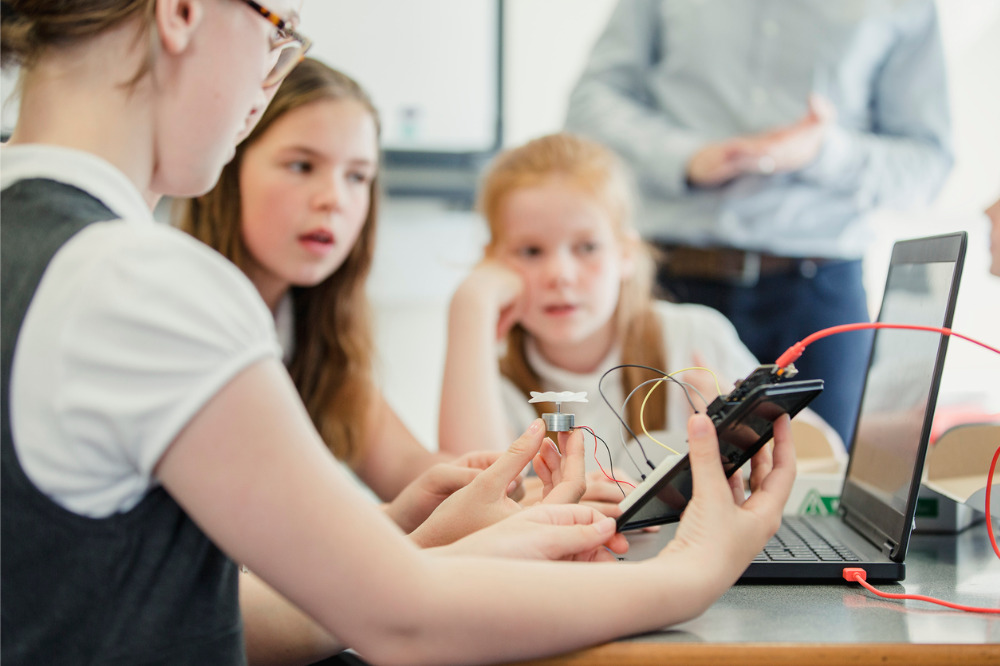
A new study from the UK has found that girls who attend single-sex schools are generally more confident and emotionally in control than girls attending state and independent coeducational schools.
AQR International’s ‘mental toughness’ research also indicates that the pandemic may have exacerbated gaps and differences that already exist between students, with girls who are mentally tougher having an advantage in dealing with the pandemic compared with girls who demonstrate less confidence and emotional control.
Chief Executive of AQR International, Doug Strycharczyk, recently told school principals attending a Girls’ Schools Association summer briefing that the research has significant implications for much of the UK’s population, during and after the pandemic.
“It shows the importance of being aware of an individual’s and an organisation’s mental toughness. Differences in mental toughness may well have widened during the pandemic,” Strycharczyk said.
“Any government ‘catch-up’ scheme would do well to take this into account. All things being equal, writes AQR International, international studies show that “having higher levels of mental toughness confers an advantage for those individuals”.
Strycharczyk said girls who attend single-sex schools are more effective at dealing with challenge, opportunity, stress and pressure, and less likely to be anxious or depressed.
“Developing young people’s mental toughness,” concludes the 2021 report, “is an investment made towards creating a more resilient society of the future that is capable of managing new challenges with a positive outlook.”
The report adds to a growing body of research which speaks to the resilience of students who attend all-girls schools.
Earlier this year, the Mission Australia’s National Youth Survey 2020 found that girls at single-sex schools fared better than the national average during the pandemic.
“It is an extremely positive demonstration of the power of all-girls schools and reveals the impact of single-sex schooling on girls’ confidence and emotional resilience,” Loren Bridge, Executive Officer, the Alliance of Girls' Schools Australasia (AGSA), told The Educator.
“The researchers discovered that girls in girls’ schools possess higher levels of mental toughness than girls attending co-educational schools. In particular they have greater commitment, greater emotional control and greater confidence — both in terms of confidence in their own abilities and their inter-personal confidence.”
Bridge said the UK study has some important implications for all-girls schools here in Australia.
“For girls’ schools it’s good news and confirms everything girls’ school educators have always said about the grit and resilience that is characteristic of girls in their schools,” she said.
“It validates the emphasis girls’ schools place on strong wellbeing programmes that build mental toughness.”
Bridge said girls in single-sex schools have a mental health advantage to deal with the challenges of the pandemic and the confidence and positive approach to take what comes in their stride.
“It may even explain why girls in girls’ schools tend to do better academically, socially and emotionally than girls in coeducational schools.”
Bridge said that providing a learning environment where girls are free from gender-weighted scrutiny and are encouraged to take risks, be competitive, challenge gender stereotypes and associate failure as a part of their learning all contribute to their mental toughness and will benefit them both at school and in life.
“The researchers suggest that "developing awareness amongst staff and self-awareness amongst pupils about the way they respond mentally to major events can ‘close the gap’ for many pupils,” she said.
“So, the key learning point here for all schools is that mental toughness is a mindset that can be developed, and for girls a single-sex education is the surest path to develop mental toughness and set girls up for life success.”


